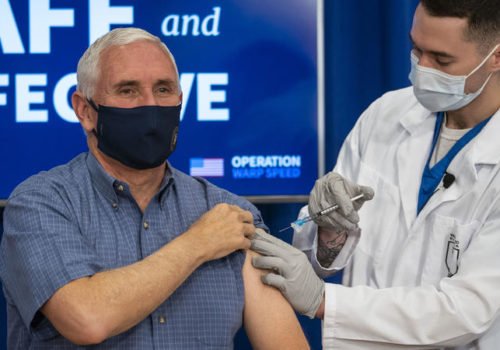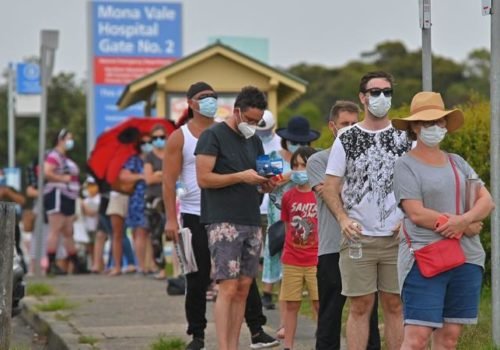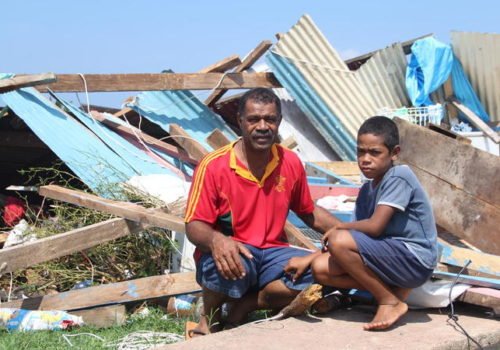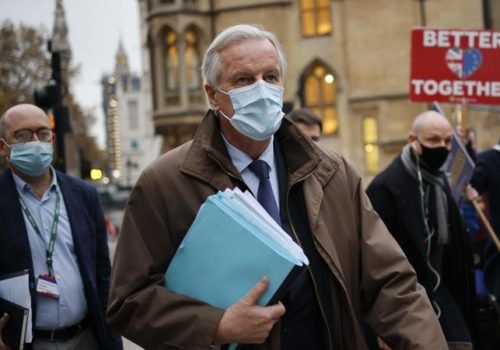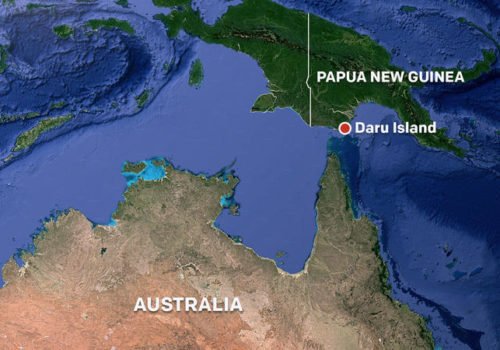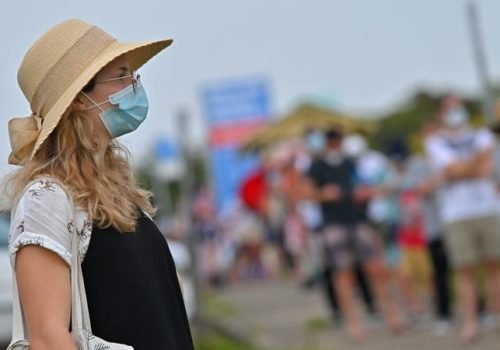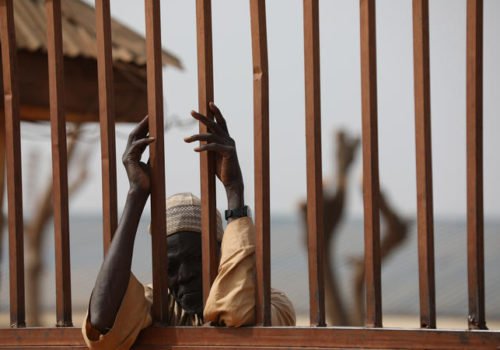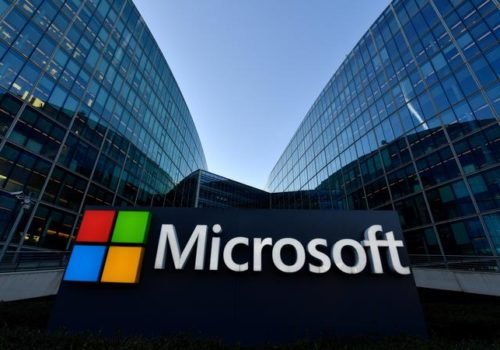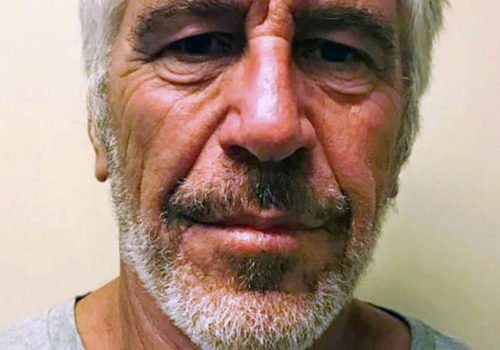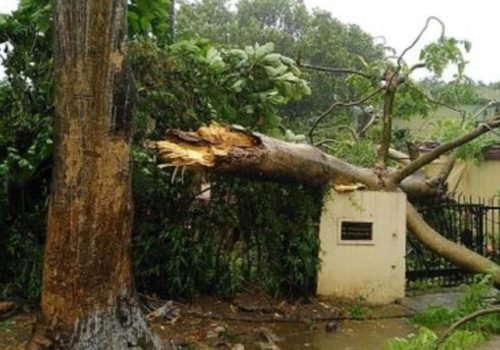Televised Covid jab for top US politicians
US Vice-President Mike Pence has received the coronavirus vaccine live on TV, telling the audience and doctors: "I didn't feel a thing."
Vice-President Mike Pence receives the coronavirus vaccine on live TV. Photo: Doug Mills-Pool/Getty Images/AFP
The White House said the aim of the move was to "promote the safety and efficacy of the vaccine and build confidence among the American people".
Pence's wife, Karen, and Surgeon General Jerome Adams also received the jab at the televised White House event.
This week, the US began rolling out the Pfizer/BioNTech vaccine.
The first vaccine to be approved in the US, it offers up to 95 percent protection against Covid-19.
The first three million doses are being distributed to locations across the 50 US states.
Meanwhile, a second vaccine, developed by Moderna, has come a step closer to receiving emergency approval, after it was endorsed by a panel of experts.
As Pence was receiving his jab, US president Donald Trump incorrectly said on Twitter that the Moderna vaccine was "overwhelmingly approved" with "distribution to start immediately". It is still awaiting final approval from the Food and Drug Administration (FDA).
More than 310,000 people have died with coronavirus in the US, which has recorded more infections and fatalities than any other country. More than 17 million cases have been recorded in the country since the start of the pandemic.
Pence, 61, is the most senior US official to be vaccinated so far.
"We gather here today at the end of a historic week to affirm to the American people that hope is on the way," he told the crowd, after the number of newly-recorded US coronavirus deaths surpassed 3000 for the third day in a row.
"Karen and I were more than happy to step forward before this week was out to take this safe and effective coronavirus vaccine that we have secured and produced for the American people," he continued, calling it "a truly inspiring day".
Top infectious diseases expert Dr Anthony Fauci, and Centers for Disease Control and Prevention Director Robert Redfield were in the audience to observe the doctors from Walter Reed hospital perform the injections.
Both men elbow-bumped Pence and his wife after their jabs. Trump did not attend the event.
A healthcare worker holds a Pfizer-BioNtech Covid-19 vaccine at a research centre in Florida. Photo: 2020 Anadolu Agency/ AFP
"We want virtually everyone eligible to get this vaccine ultimately," Fauci said.
"By the time we get to several months into this [coming] year we will have enough people protected that we can start thinking seriously about the return to normality."
Speaker of the House Nancy Pelosi, the most senior Democrat in Congress, and Republican Senate Majority Leader Mitch McConnell also received the vaccine yesterday.
"As the vaccine is being distributed, we must all continue mask wearing, social distancing & other science-based steps to save lives & crush the virus," tweeted Pelosi, alongside pictures of herself getting the jab.
"Just received the safe, effective Covid vaccine following continuity-of-government protocols," tweeted McConnell, sharing a photo of his vaccination card. "Vaccines are how we beat this virus."
Earlier this week, Trump reversed a plan for senior members of his administration to be among the first to receive the vaccine "unless specifically necessary".
The president, who contracted the coronavirus in October and recovered after hospital treatment, said he was not scheduled to take the jab but looked forward to doing so "at the appropriate time".
Many of his supporters have doubts about the efficacy and safety of vaccines.
President-elect Joe Biden, who at 78 is in a high-risk group from Covid-19, is expected to be vaccinated next week.
He has set a goal of administering 100 million vaccination shots in the first 100 days after he takes office on 20 January.
- BBC

